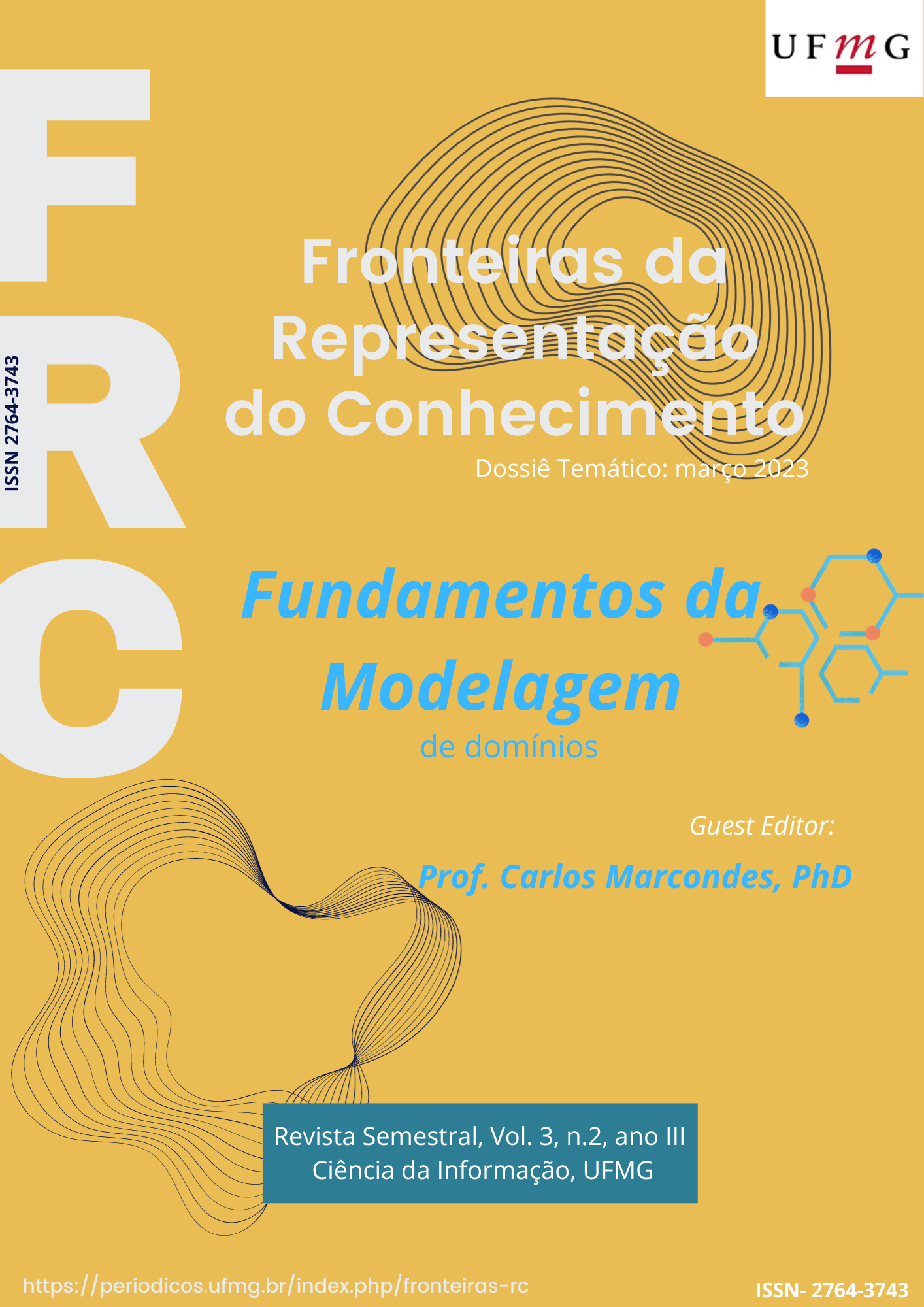Ontological and epistemological assumptions influence on KOS
Main Article Content
Abstract
Foundation ontologies provide principles and theories aligned with a metamodel that can be used coherently in the construction of Knowledge Organization Systems (KOS) of specific domains. Conceptual domain models developed in accordance with a foundation ontology are called ontological models and should reflect in their scope and intention what was raised through the analysis of that domain, which reflects a point of view. Based on the recognition of the underlying epistemological and ontological perspectives, the points of view that are adopted to observe the domain are established, as well as principles and methods for its modeling and representation, in order to make its understanding and reuse clearer. How exactly the domain will be represented, the languages to be adopted, the formalisms and methodologies, all this depends to some extent on the objective of the ontology. In any case, the epistemological and ontological assumptions that influence the representation of the domain, as well as the principles adopted for its modeling, are often not clearly explained, leading to misunderstandings of the ontological commitment underlying these models. In this scenario, we aim to discuss aspects that are at the level of metamodels, to situate their importance, and how they impact conceptual models. As a result, a systematic, non-exhaustive framework of such aspects is presented, with examples of how they can affect existing KOS understanding.
Article Details
Section

This work is licensed under a Creative Commons Attribution 4.0 International License.
From: https://creativecommons.org/licenses/by/4.0/
You are free to:
- Share — copy and redistribute the material in any medium or format
- Adapt — remix, transform, and build upon the material
- for any purpose, even commercially.
- The licensor cannot revoke these freedoms as long as you follow the license terms.
Under the following terms:
-
Attribution — You must give appropriate credit, provide a link to the license, and indicate if changes were made. You may do so in any reasonable manner, but not in any way that suggests the licensor endorses you or your use.
- No additional restrictions — You may not apply legal terms or technological measures that legally restrict others from doing anything the license permits.
Notices:
- You do not have to comply with the license for elements of the material in the public domain or where your use is permitted by an applicable exception or limitation.
- No warranties are given. The license may not give you all of the permissions necessary for your intended use. For example, other rights such as publicity, privacy, or moral rights may limit how you use the material.


